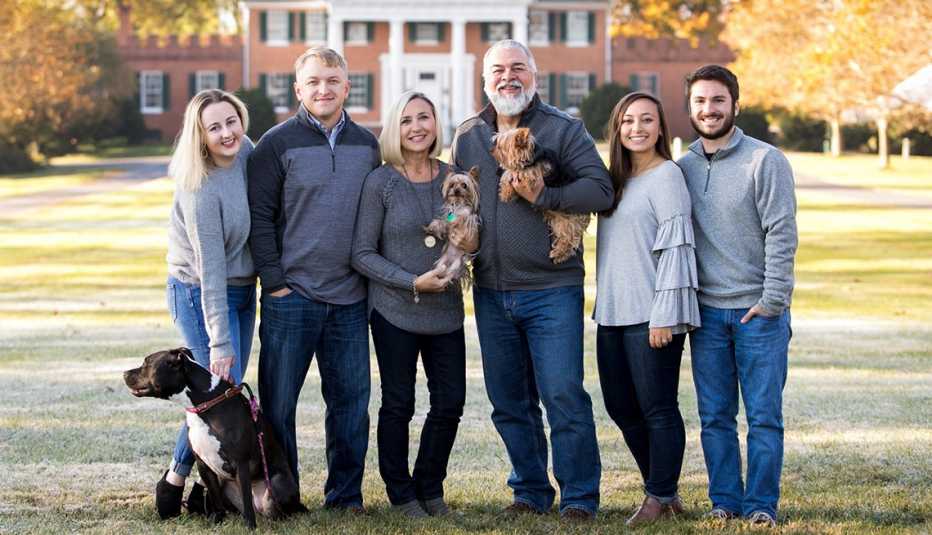AARP Hearing Center


Parkinson’s disease is often associated with one of its more common symptoms, tremor. But over the years, we’ve learned that living with the neurological disorder is about so much more than managing movement. The disease can impact everything from mental health to memory, energy levels and more. It can feel all-consuming.
“Parkinson’s can be scary [and] traumatic,” says 66-year-old Gregg Hummer, an underground silver miner turned sales professional who was diagnosed with the disease in 2014. “But you can still live a fulfilled life with this condition.”
Learn how this is possible, as three people share how Parkinson’s has shaped their lives.
Teresa Jackson, 60, Stephens City, Virginia
I just could not get my legs lifted
By the time Teresa Jackson went to the doctor for the visit that led to a Parkinson’s diagnosis, she had spent about a year noticing one new symptom after another. There was the pain and stiffness in her left shoulder and left hand — and then, the tremor on her left side.
At one point, she realized she couldn’t put her clothes on a hanger. She also started having trouble with coins: A cashier would give Jackson her change, and she just couldn’t seem to put it in her wallet. And on video calls, her daughter in Northern Ireland told her that her phone was moving.
When she walked around, “everything was very intentional,” Jackson recalls. “When I moved, it was with great concentration.”


Still, “Parkinson’s was never on the radar for me,” she says. But one day she became concerned about her mobility. This felt foreign to her, because after 35 years in the health care system, she was the type to take the stairs, not the elevator, up to the fourth floor.
“I noticed that I just could not get my legs lifted,” she says. “It was like I was losing my ability to move quickly or to run down the stairs. And I thought, You know, if there were to be a fire in this building, I don’t know that I would make it out. It was that difficult getting down the stairs.”
When she did eventually get a diagnosis, she was left feeling not just stunned but unprepared. Jackson was handed a prescription and told to make a six-month follow-up appointment. That was about it.








































































More From AARP
The Six Pillars of Brain Health
Visit AARP® Staying Sharp® to learn more about the six pillars of brain health
Black Adults Face Delays in Parkinson’'s Diagnosis, Care
One man living with the disorder offers advice on how to address the disparities
Ping-Pong Helps Parkinson’s Patients
Players rally for fitness, camaraderie and hope